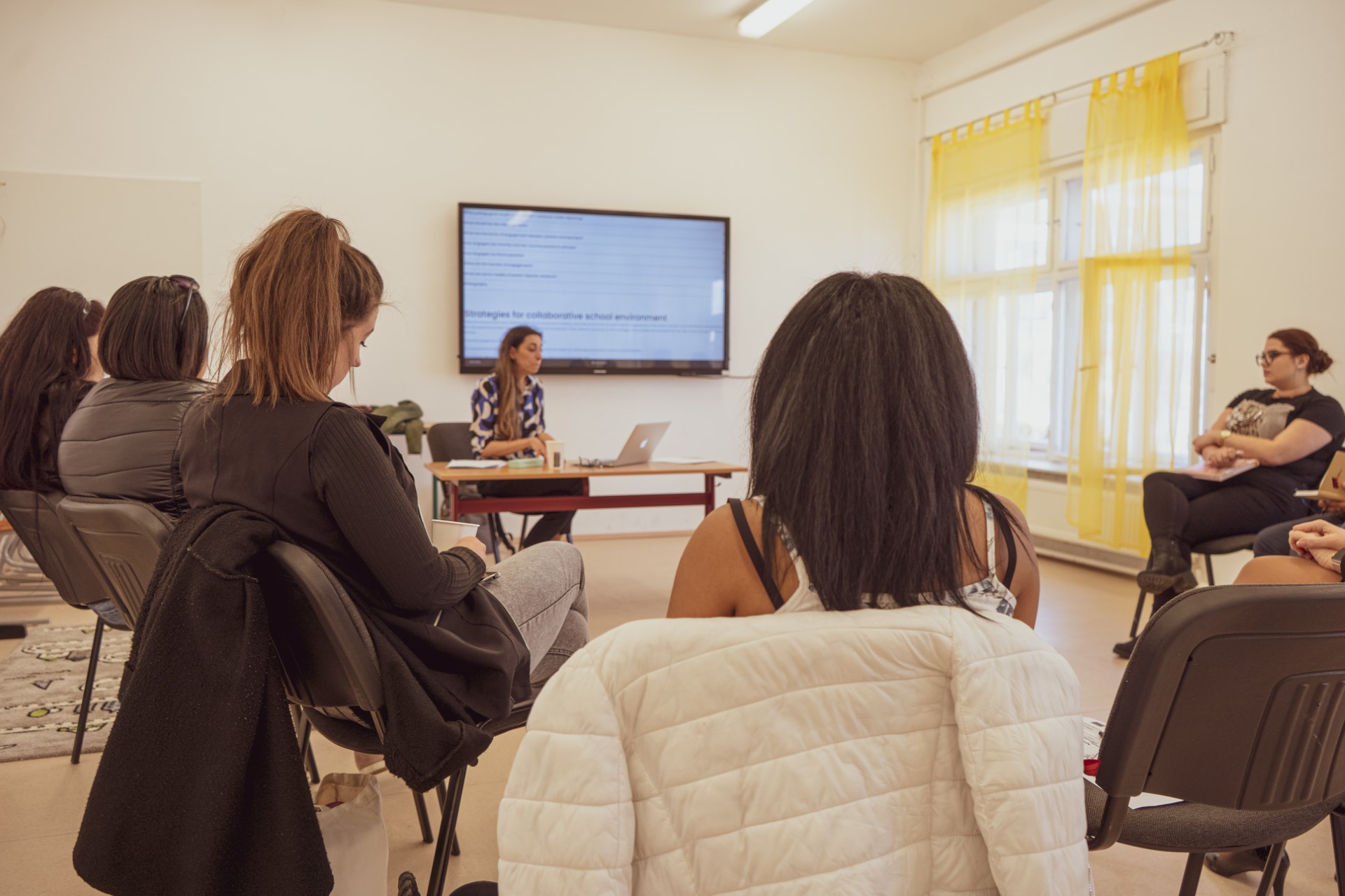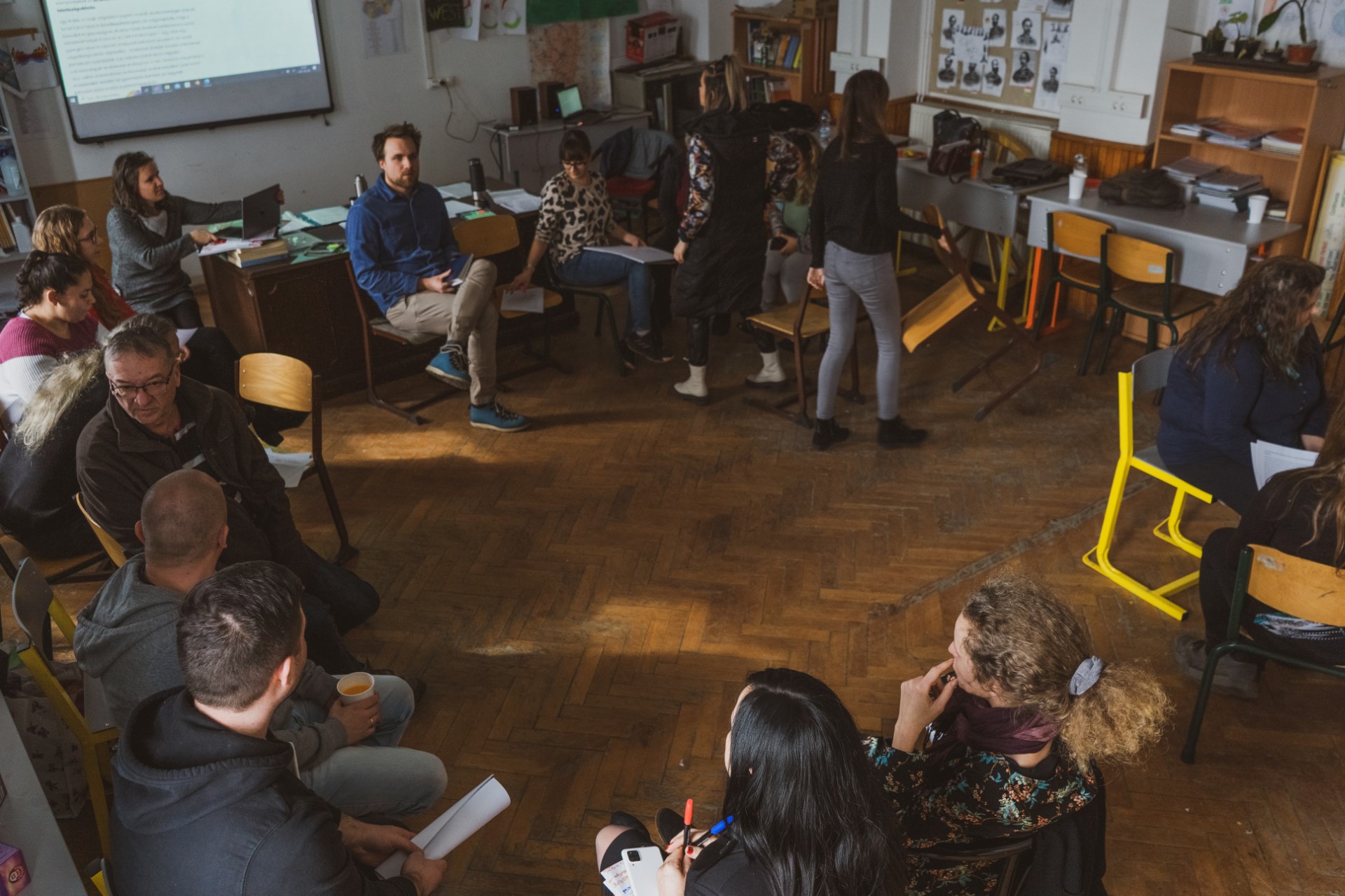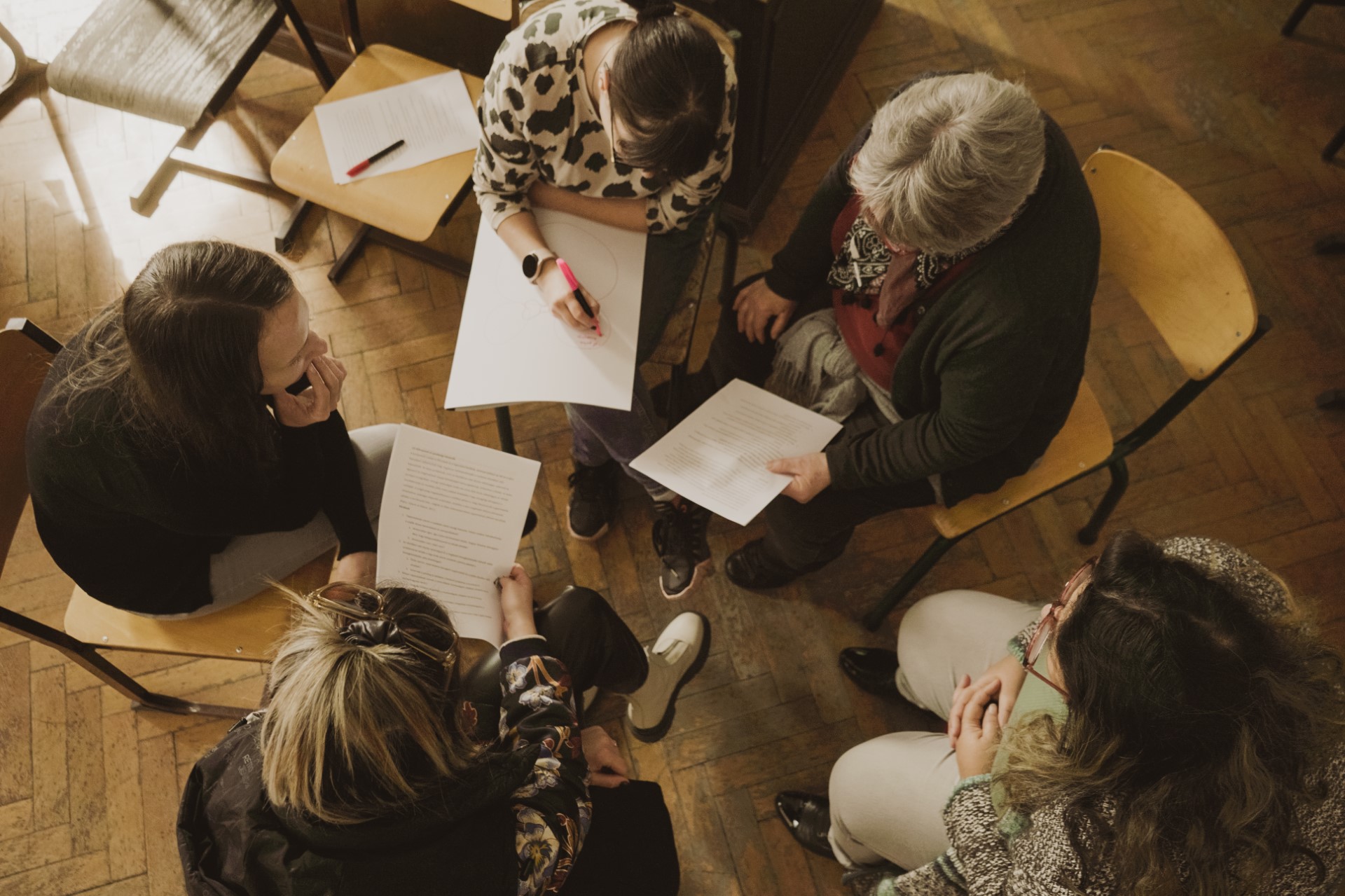Inclusive schools: engaging parents of vulnerable youth
Engaging parents of vulnerable youth: The case of Roma in Hungary’s education system is a pilot project led by Romedia Foundation aiming to:
– gather the most up-to-date information about the challenges, best practices, and regional particularities related to Hungarian schools’ engagements with Roma parents;
– identify existing strategies and forms of engagement between Roma parents and schools;
– prepare a Toolbox with best practices (“better stories”) and resources for schools to efficiently engage with hard-to-reach parents

Romedia Foundation is a Roma-led non-governmental organization based in Budapest, Hungary, established in 1992 with the ultimate goal to contribute to just and equal societies. On the one hand, Romedia works towards employing film and media to challenge and redefine traditional conceptions of Romani identity, as well as to amplify marginalized voices through media, film, photography and through other visual means. On the other hand, Romedia has a long tradition of working with the youth, engaging in non-formal educational efforts, and strengthening Roma communities.
Project’s activities
The project consists of desk research and fieldwork in order to fully understand the needs and obstacles to improving teacher-parent cooperation. Fieldwork will be conducted in several schools throughout Hungary with many Roma students. In addition, fieldwork will extend to non-formal educational institutions, who are an integral part of the Hungarian educational landscape, with rich experience of cooperating with parents. These institutions will also be involved in various stages of co-creating the Toolbox.
Romedia Foundation focuses on Roma parents because Roma are the most populous minority group in Europe, facing intersectional discrimination (due to low socio-economic status and their ethnicity, which is combined with gender-based discrimination among Roma women), and thus the findings will be applicable to schools outside of Hungary as well.
The toolbox
The content of the Toolbox will be developed in a collaborative manner. Through series of workshops and meetings with teachers and parents, the Toolbox will be co-designed and tested to assure its practicality and continuous use beyond the project cycle. The resulting Toolbox will be instructive for schools especially in Central and Eastern Europe, where Roma discrimination and resulting lack of contacts with Roma parents is a major obstacle to Roma children succeeding in school. The Toolbox will consist of three sections:
– findings from research in an easily accessible language;
– case studies and better stories on school-parent cooperation;
– resources for teachers to engage with parents of vulnerable students.
All findings and results of the project will be presented during a public seminar at the end of the project, and throughout the project as part of social media campaigns.
AchievEments
The project plan involved several steps, including a survey, fieldwork, and the co-development of toolbox for parents (in the form of workshops).
During the first phase of the project, the implementing team focused on mapping of existing resources, such as international literature and best practice examples. This activity concluded with the publication of the literature review. The next phase of the project involved an online survey, as well as fieldwork consisting of interviews and ethnographic observations of teacher-parent meetings in 3 sites in different regions of Hungary. Following that, a Toolbox was co-designed, tested, and published on the project website. The project concluded with a conference organised by the implementing team, during which the Toolbox was presented and discussed with various stakeholders. The project and its findings were popularized through multiple platforms, including a short film and articles currently being prepared.




